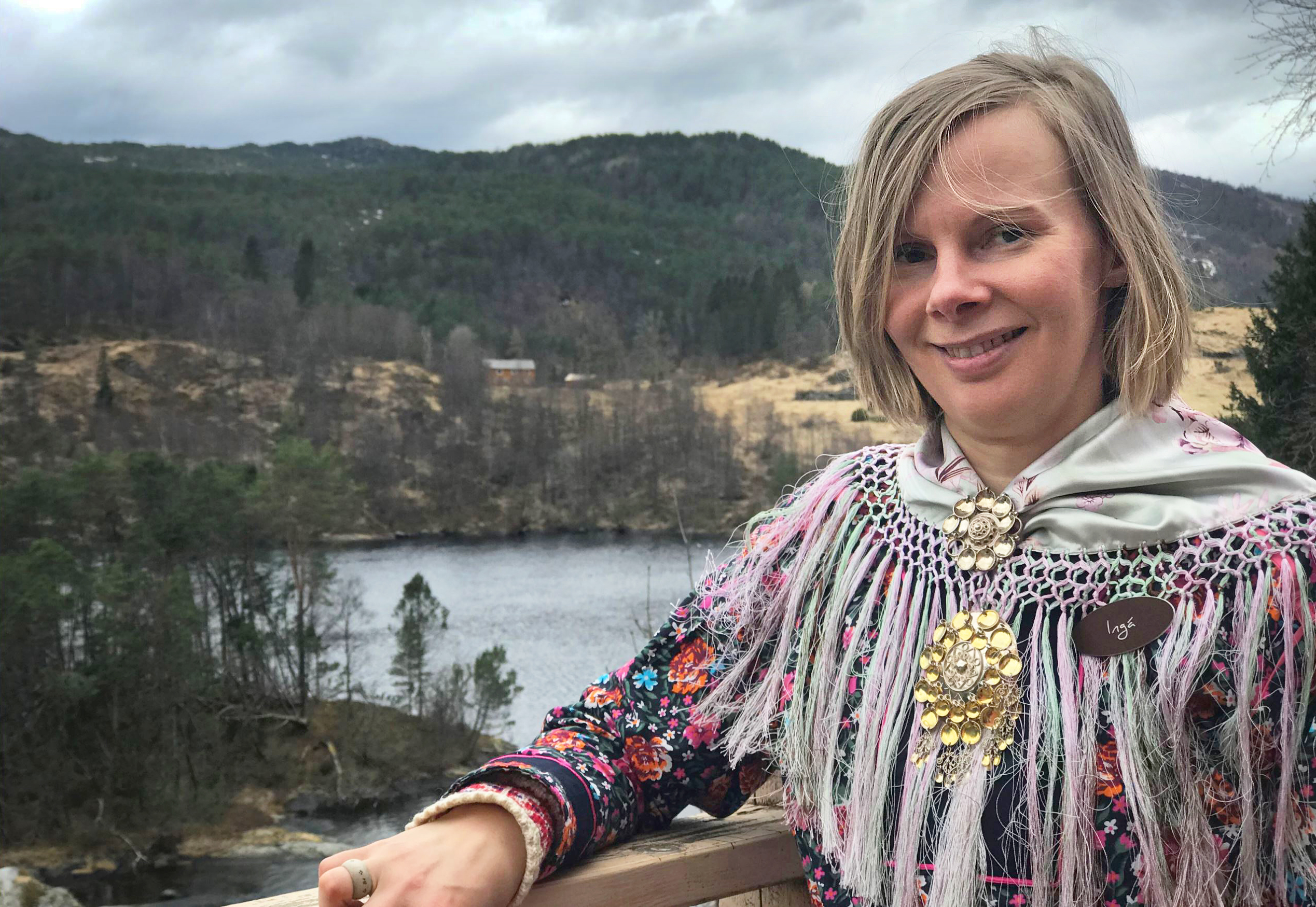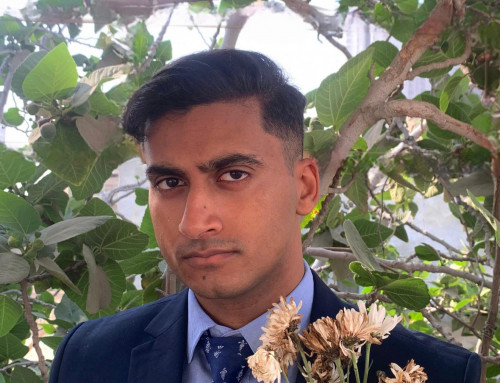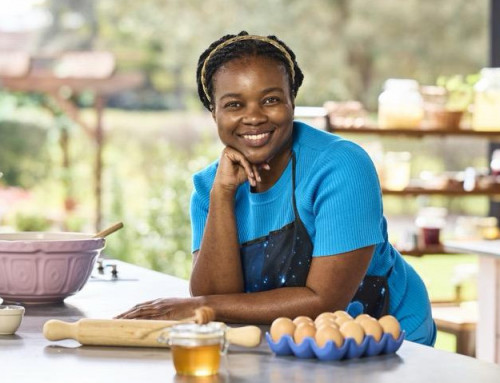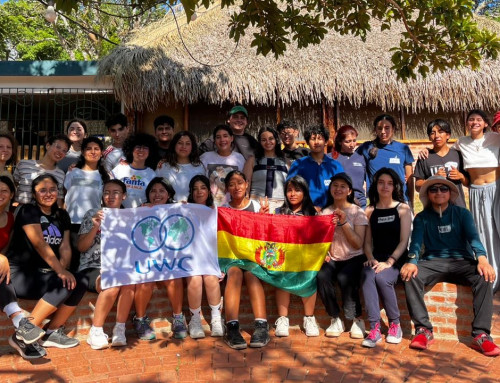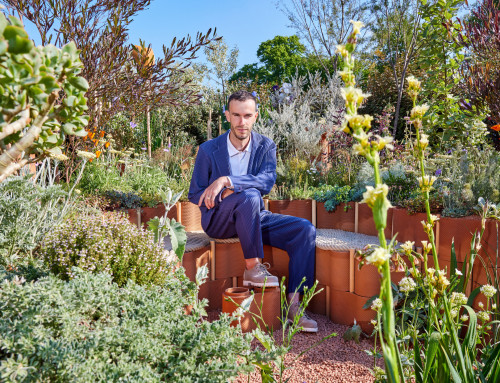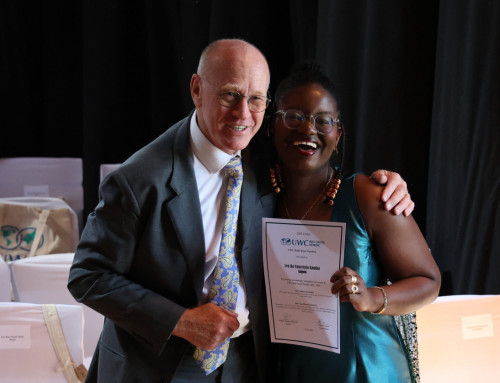“Finally, we can feel proud to be indigenous”: An interview with RCN visitor Máret Ingá Länsman
This week, I was deeply heartened to welcome to the College Máret Ingá Länsman, a Sámi language and culture teacher currently undertaking a Master’s in Teacher Education at the Sámi University College up north in Guovdageaidnu, Norway. Ingá comes from a large reindeer herding family in Njuorggán, a town of two hundred some 500 km past the Arctic Circle in the Sámi indigenous homeland. Ingá chose to undertake her week-long traineeship at RCN because she was particularly drawn to the overarching mission of deliberate diversity at the College. How might it be for students from some 90 nationalities to live and study together in the midst of a fjord? What might be the experiences of indigenous RCN students?
When asked about her first impressions of the College, Ingá paused to reflect: “I think that what strikes you most, even more than the landscape, is the sense of warmth, care and community that this place exudes. You cannot help but feel it right away, even as a visitor. The students are also really just something. To study so far away from home, to live in a room with four others, to survive the Nordic winter – they must be resilient and tough! There is a lot that other schools could learn from RCN. Even though I was only here for a week, it is clear that it is a very special place somehow”.
April translates in the northern Sámi language as ‘cuoŋománnu’ – literally meaning the month of the hard, carrying snow. Nights are still below freezing, and the key endeavor amongst reindeer herding families such as Ingá’s is to travel into the tundra to prepare for the reindeer calving season in May. Her two brothers both work as reindeer herders, whilst Ingá and her sister trained to become teachers at the Sámi University College in Guovdageaidnu. The Sámi University College is one of the few universities in the world offering programmes in an indigenous language up to the PhD level. The main working and teaching language is northern Sámi, and indigenous pedagogical methods as well as culturally relevant course materials are heavily emphasised.
During her week at RCN, Ingá attended classes in Geography, Art, Theory of Knowledge, Theatre, and Philosophy. She also led a special sharing circle in the Silent House with RCN indigenous students and allies. It was a cozy evening filled with storytelling, reindeer meat, and ruisleipä (objectively speaking, the best bread of the Nordic region). We discussed the value and survival of indigenous spiritualities, rituals, pedagogical methods, and relationship with the natural world from different indigenous perspectives.
“It’s not always so easy, to get indigenous voices to be heard. Even in the Nordic countries, most Nordic citizens learn so little about us, the Sámi people, in school. This is not the fault of any individual for not knowing – I think that many want to learn more – it is ultimately a decision on the part of each government. Many indigenous peoples face this same struggle. Until we start to educate the younger generations about indigenous histories, cultures, and languages, how can we ever build a bridge?”
As Ingá packs her bags to head back home to Sápmi, she leaves feeling deeply inspired by the sense of community that she encountered during her stay at the College. She thanks all of the teachers and students who warmly welcomed her into their classes, she wishes second years the best of luck during their upcoming exams, and she expresses gratitude to those RCN indigenous students and allies who participated in the sharing circle.
“Many indigenous youth may still lack confidence and need an extra boost in order to be heard. Up in Sápmi, we still have many struggles ahead of us, but we are also living in a special time when more and more Sámi youth can say: finally, we can feel proud to be indigenous! I wonder if one day a special scholarship might be made available for Sámi youth to become part of the UWC community. In the meantime, I thank RCN for making space for indigenous voices here on campus.”
Written by Lisa Jokivirta

